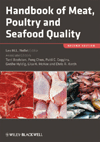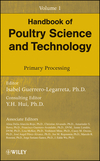USPOULTRY’s Women’s Leadership Conference encourages mentorship
The event emphasizes practical advice for women to help take control of their careers.

Kendra Waldbusser
USPOULTRY’s Women’s Leadership Conference provided an insightful panel of speakers to facilitate career growth and development among women leaders in the poultry and egg industries. While there were multiple individual stories, the importance of mentoring and advocating for self were recurring themes. Through shared experiences, attendees were able to collaboratively discuss strategies to invest in themselves and grow their careers.
A profile of women leaders was provided, with Kendra Waldbusser, head of food safety and quality for Pilgrim’s, kicking off the conference with practical advice for women to help take control of their career. She remarked that you need to negotiate for what you want and advocate for yourself. The key takeaways from her presentation were to aspire to be the best person for a role and establish and protect your personal brand.
Valerie Dahlke, corporate food safety manager for Wayne-Sanderson Farms, spoke about the importance of mentorship. She noted that mentorship is important for career development, particularly for women who are traditionally underrepresented in the poultry industry. Dahlke offered advice from one of her mentors, “Toot your own horn because nobody else is going to,” reminding attendees that it is okay to recognize your successes.
Lydia Safir, pet process engineer for Perdue Farms, Inc., provided a young professional’s perspective. While a more recent addition to the industry, she continued the theme of mentorship to achieving goals. Networking with other people who have been in the industry longer is crucial, as it will help broaden your knowledge and opportunities for career advancement. Safir further echoed the message from the prior two speakers that it’s important to know one’s worth and ask for things that are important.
In her presentation on successful team building and mentorship, Adrienne Allison, safety director of poultry operations for Tyson Foods, Inc., discussed the importance of trust, understanding and relationships in building teams. She relayed that it is important to know the team in order to lead them effectively and respond to team members’ needs. Personal relationships with employees help leaders to communicate with their team members more effectively, whether recognizing them for their accomplishments or addressing a deficiency.
Sarah Hendricks, corporate human resources officer for Peco Foods, Inc., addressed nonverbal expressions, particularly facial expressions, and their role in communication. She noted that research shows when a conflict exists between words and nonverbal cues, the nonverbal cues are given more consideration. She said that since facial expressions provide feedback, they can greatly affect the tone and outcome of an interaction. Hendricks advised attendees to adopt a neutral expression, similar to how one would look while watching television, during interactions in order to control the impression provided by facial impressions. She said that it was also a good idea to practice, in a mirror, nonverbal reactions to various situations, particularly those that are sensitive to the individual.
Source: USPOULTRY
Looking for a reprint of this article?
From high-res PDFs to custom plaques, order your copy today!







